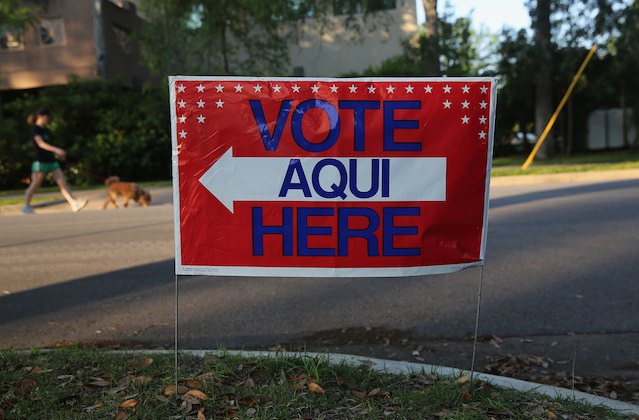Latinos are already remaking U.S. demography, but their impact on elections is still up for debate. In Georgia, demographic shifts, combined with Latino voters’ perennial disappointment over immigration reform, make for a unique race this fall. A key question, as in other recent elections, is whether Latinos will express their frustration by staying home. Such a move would hurt Democrats more so than Republicans, who in 2010 sought to capitalize on this tension by airing a political ad urging Latinos to stay home from the polls.
Los Angeles Times’ Mark Barabak reports on the issues at play in the countdown to these midterms:
Latinos have been among the biggest beneficiaries of the new federal healthcare law and Velez, a Democrat, considers it a good thing Obama has done. But it was just one thing — and a small one at that — compared with the immigration issue, [Eddie] Velez said. "Everything that was promised didn’t happen," said the round-cheeked 33-year-old, who may skip next month’s election, figuring it won’t make much difference who wins. "Nothing has changed."
In many ways Georgia offers both a reflection of the past and a window into the future of Latinos’ growing political clout.
The Latino population has increased from less than 1% of Georgia’s 4.6 million residents in 1970 to more than 9% of the state’s nearly 10 million residents today.
…
Eventually, Latinos, Asian Americans — also Democratic-leaning and rapidly growing in number — and the state’s historically large black population are expected to turn Georgia from solidly Republican into a swing state. "Republicans are just going to run out of white voters," said Charles Bullock, a demographics and political expert at the University of Georgia.
But will Latinos refuse to vote this year to send a political message to Democrats not to take them for granted? In recent years, the threat that Latinos, whose midterm election turnout indeed dips between presidential elections, will stay home on Election Day has become as common a refrain as promises of immigration reform made and left unfulfilled.
